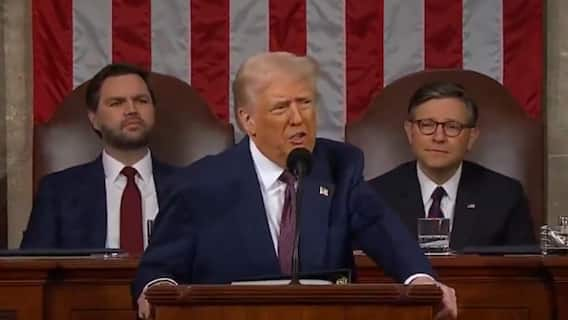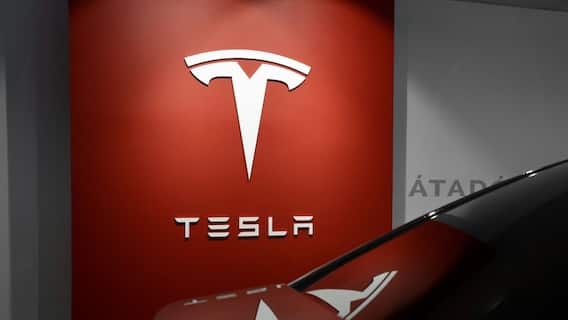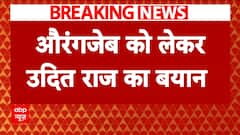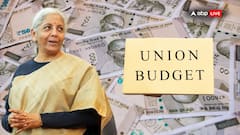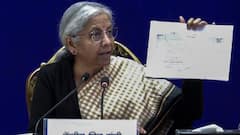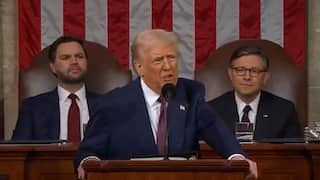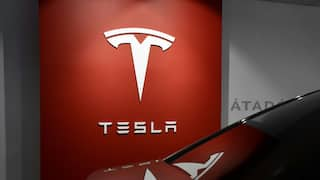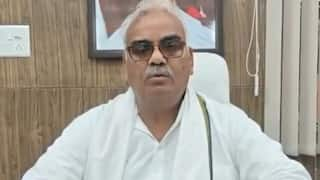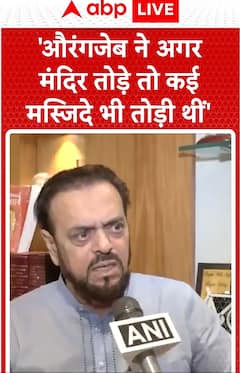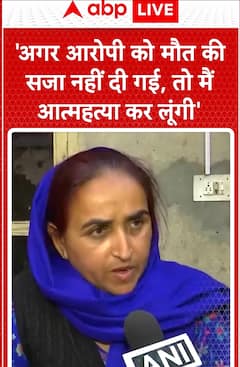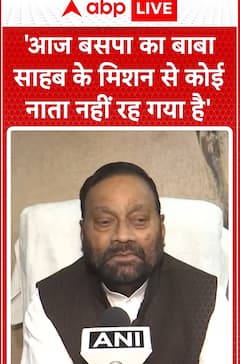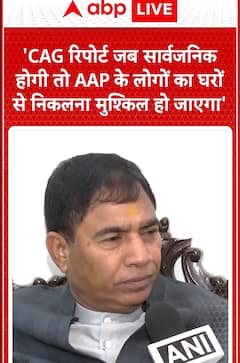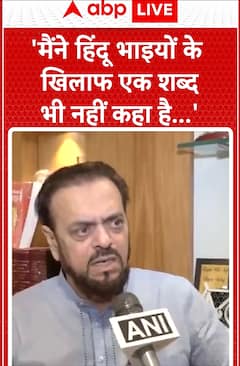Explorer
Budget 2019: From Tax Slabs To Petrol, Diesel Cost; How FM Sitharaman's Budget Impacts India
Finance and Corporate Affairs Minister Nirmala Sitharaman made her maiden Budget Speech on Friday and presented the Union Budget 2019-20 before Parliament.

Union Finance Minister Nirmala Sitharaman (PIC/PTI)
Budget 2019: Finance and Corporate Affairs Minister Nirmala Sitharaman made her maiden Budget Speech on Friday and presented the Union Budget 2019-20 before Parliament. Althrough her 2 hours 17 minutes long maiden budget presentation, Sitharaman did not pause to have a sip of water. The budget proposals were welcomed with frequent thumping of desks by the treasury benches with Prime Minister Narendra Modi too joining the members.
Interest deduction on home loans raised by Rs 1.5 lakh to Rs 3.5 lakh
Sitharaman raised tax deduction limit to Rs 3.5 lakh on interest paid on housing loan sanctioned during this fiscal for purchase of first home worth up to Rs 45 lakh, a move aimed at boosting the affordable housing segment. Besides, the government will initiate reform measures to promote rental accommodations and will finalise and circulate a model tenancy law to states, the minister said.
Sitharaman announced that 1.95 crore homes will be provided to eligible beneficiaries till 2021-22 under the Pradhan Mantri Awas Yojana - Gramin (PMAY-G). The regulation of housing finance companies will now be done by the Reserve Bank of India instead of the National Housing Bank, she added.
Govt proposes additional income tax deduction of Rs 1.5 lakh on EV loans
The government on Friday proposed to provide additional income tax deduction of Rs 1.5 lakh on the interest paid on loans taken to purchase electric vehicles as part of efforts to accelerate adoption of eco-friendly mobility solutions. While presenting the Budget for 2019-20, Nirmala Sitharaman said the initiative would lead to a benefit of around Rs 2.5 lakh for a customer during the entire duration of the loan.
"Considering our large consumer base, we aim to leapfrog and envision India as a global hub of manufacturing of electric vehicles," she said. In order to make EVs affordable, the government has already moved the GST council to lower the tax rate on such vehicles from 12 to 5 per cent, the finance minister said. "Also to make electric vehicles affordable to consumers our government will provide additional income tax deduction of Rs 1.5 lakh on the interest paid on the loans taken to purchase EVs," Sitharaman said.
Petrol, diesel to be costlier; tax on super-rich, gold imports
Sitharaman raised special additional excise duty and road cess on petrol and diesel by Re 1 per litre each, saying lower crude oil prices provide her with an opportunity to review taxes on the sector. Also, customs duty on gold and precious metals was raised from 10 per cent to 12.5 per cent to mobilise resources.
Basic customs duty was raised on an array of products including tiles, cashew kernels, vinyl flooring, auto parts, some synthetic rubber, digital and video recorder and CCTV camera. Excise duty of Rs 5 per 1000 has been imposed on cigarettes of length exceeding 65 mm, while 0.5 per cent duty
has been levied on chewing tobacco, zarda and tobacco extracts and essence.
Rs 400 crore for world class educational institutions
In a bid to place India on the global arena, an amount of Rs 400 crore has been provided in Budget 2019 to create world class educational institutions. This is more than three times the revised estimates for the previous year.
Finance Minister Nirmala Sitharaman said in her budget speech that the government will bring in a New National Education Policy to transform India's higher education system to one of the best in the world.
She highlighted that while there was not a single Indian institution in the top 200 in the world university rankings five years back, there were three now - two IITs and IISc Bengaluru.
No angel tax scrutiny for start-ups if requisite declarations made
In a huge relief for the start-ups community, Finance Minister Nirmala Sitharaman on Friday said the start-ups and their investors who file requisite declarations and provide information in their returns will not be subjected to any kind of angel tax scrutiny.
"The issue of establishing identity of the investor and source of his funds will be resolved by putting in place a mechanism of e-verification. With this, funds raised by start-ups will not require any kind of scrutiny from the Income Tax Department," said Sitharaman while presenting her maiden Union Budget.
Introduced in 2012 by the then United Progressive Alliance (UPA) government, angel tax received widespread criticism from the start-ups community as some of them began receiving I-T notices for non-payment of dues.
The key highlights of Union Budget 2019 are as follows:
10-point Vision for the decade
1. Building Team India with Jan Bhagidari: Minimum Government Maximum Governance.
2. Achieving green Mother Earth and Blue Skies through a pollution-free India.
3. Making Digital India reach every sector of the economy.
4. Launching Gaganyan, Chandrayan, other Space and Satellite programmes.
5. Building physical and social infrastructure.
6. Water, water management, clean rivers.
7. Blue Economy.
8. Self-sufficiency and export of food-grains, pulses, oilseeds, fruits and vegetables.
9. Achieving a healthy society via Ayushman Bharat, well-nourished women & children, safety of citizens.
10. Emphasis on MSMEs, Start-ups, defence manufacturing, automobiles, electronics, fabs and batteries, and medical devices under Make in India.
Towards a 5 Trillion Dollar Economy
"People?s hearts filled with Aasha (Hope), Vishwas (Trust), Aakansha (Aspirations)," says FM.
Indian economy to become a 3 trillion dollar economy in the current year.
Government aspires to make India a 5 trillion dollar economy.
Union Budget 2019-2020: India Inc. are India's job-creators and nation's wealth-creator, Sitharaman said.
Need for investment in: Infrastructure, Digital economy, Job creation in small and medium firms, Initiatives to be proposed for kick-starting the virtuous cycle of investments, Common man's life changed through MUDRA loans for ease of doing business.
Measures related to MSMEs:
Pradhan Mantri Karam Yogi Maandhan Scheme
Pension benefits to about three crore retail traders & small shopkeepers with annual turnover less than Rs. 1.5 crore.
Enrolment to be kept simple, requiring only Aadhaar, bank account and a self declaration.
Rs 350 crore allocated for FY 2019-20 for 2 per cent interest subvention (on fresh or incremental loans) to all GST-registered MSMEs, under the Interest Subvention Scheme for MSMEs.
Payment platform for MSMEs to be created to enable filing of bills and payment thereof, to eliminate delays in government payments.
The key highlights in the transport sector are as follows:
India's first indigenously developed payment ecosystem for transport, based on National Common Mobility Card (NCMC) standards, launched in March 2019.
Inter-operable transport card runs on RuPay card and would allow the holders to pay for bus travel, toll taxes, parking charges, retail shopping.
The key highlights in the trade sector are as follows:
Navigational capacity of Ganga to be enhanced via multi modal terminals at Sahibganj and Haldia and a navigational lock at Farakka by 2019-20, under the Jal Marg Vikas Project.
Four times increase in next four years estimated in the cargo volume on Ganga, leading to cheaper freight and passenger movement and reducing the import bill.
Petrol, diesel, gold and silver set to be dearer
A large number of items including petrol, diesel, gold, silver, cigarettes, fully-imported cars and split air conditioners (ACs) will become more expensive due to hike in taxes, as proposed by Finance Minister Nirmala Sitharaman in the Union Budget for 2019-20.
At the same time certain items such as electric vehicle components, camera module and charger of mobile phones and set-top boxes will become cheaper.
Following is a list of items that will become costlier:
Petrol and diesel
Cigarettes, hookah and chewing tobacco
Gold and silver
Fully-imported cars
Split air-conditioners
Loudspeakers
Digital video recorders
Imported books
CCTV cameras
Cashew Kernels
Imported plastics
Raw materials for manufacture of soap
Vinyl flooring, tiles
Optical fibre
Ceramic tiles and wall tiles
Imported stainless steel products
Imported auto parts
Newsprint and paper for newspaper and magazines
Marble slabs
Mountings for furniture
Following is the list of items that will become cheaper:
Electric vehicle components
Camera module and charger of mobile phones
Set top box
Import of defence equipment, not manufactured in India.
Follow Business News on ABP Live for more latest stories and trending topics. Watch breaking news and top headlines online on ABP News LIVE TV
View More
Advertisement
Trending News
Advertisement
Advertisement
Top Headlines
World
Auto
World
Cities
Advertisement








